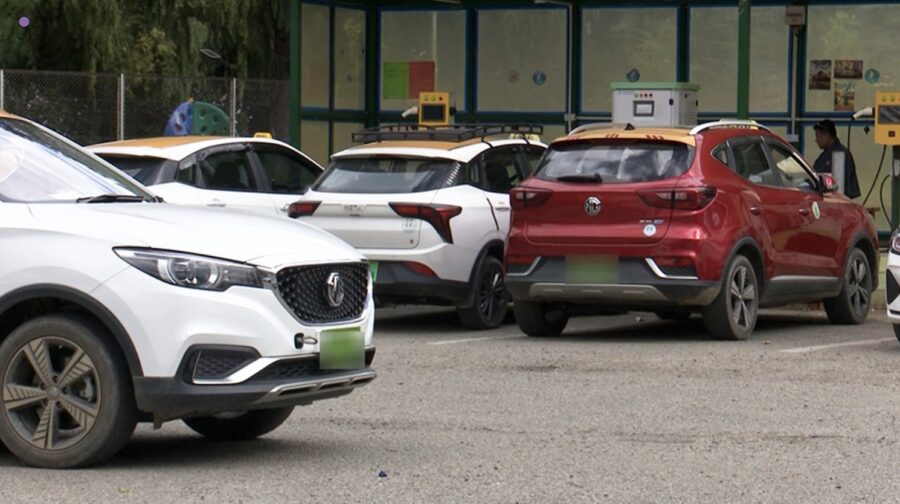
Electric vehicles, EVs, are gradually becoming a more common sight on the country’s roads, especially in the capital. Following the lifting of the government’s vehicle import moratorium in August, vehicle dealers told BBS that demand for EVs is rising. The new trend is reshaping the country’s automotive landscape and setting it on a path toward a cleaner, more sustainable future.
According to dealers, not only has the number of electric vehicles in the market increased, but demand for them is also on the rise.
The dealers attribute the growing interest in EVs to increased public awareness of their environmental benefits and long-term cost savings compared to gasoline-powered vehicles.
“What we would like to say is that, firstly, because our country is carbon negative country, that is a heritage, and number two, with His Majesty’s great vision for Bhutan through Gelephu Mindfulness City, our Bhutanese people are so much more positive and inquisitive about electric vehicles,” said Susan Lama, general manager at Asanga Mobility.
“After the lifting of the moratorium in August by the government there was a good response from the customers especially on electric vehicles. So after that, we got a booking on electric vehicles and also till now I think the majority of our sales are on electric vehicles,” said Dawa Lham, chief executive officer of Samdhen Vehicles.
“Our country plans to replace the majority of vehicles with electric vehicles within ten years. People are also showing interest, as EVs have a good appearance and are equipped with various facilities. Additionally, they reduce carbon emissions and are easy to drive,” said Ugyen Phuntsho Rabgay, general manager of Sales and Marketing at ST Motors.
Meanwhile, the Department of Surface Transport told BBS that the rise in EV dealerships in Bhutan could make EVs more affordable and accessible, encouraging more people to make the switch to electric vehicles.
“When businesses run in a monopoly, it is the consumers who feel the burden. So, we are delighted to see that more electric vehicle dealers are coming up, especially in Thimphu. With competition in the market, we are positive that the consumers will be receiving efficient post-sale service,” said Ugyen Norbu, chief programme officer at the Department of Surface Transport.
He added that EVs are more cost-effective in the long run, which can offset their initially higher purchase price.
“The total cost of ownership of an electric vehicle, when compared to the cost of ownership of let’s say, a petrol or diesel vehicle, it is always cheaper to buy an electric vehicle,” added Ugyen Norbu, chief programme officer at the Department of Surface Transport.
Furthermore, he said that the department is exploring ways to recycle e-waste generated from electric vehicles in the future.
to the department, establishing an e-waste recycling facility in the country would be costly due to the infrastructure, technology, and expertise required.
“The best way for us with the battery recycling companies in the neighboring countries, especially in India. There are a few that are doing a wonderful job, so we are trying to link up with them so that we can send our batteries, old batteries that require recycling to them.”
Currently, there are more than 650 electric vehicles in the country, with nearly 300 being taxis. The remaining vehicles include private, and office cars spread across the nation.
Kinzang Lhadon
Edited by Sherub Dorji






